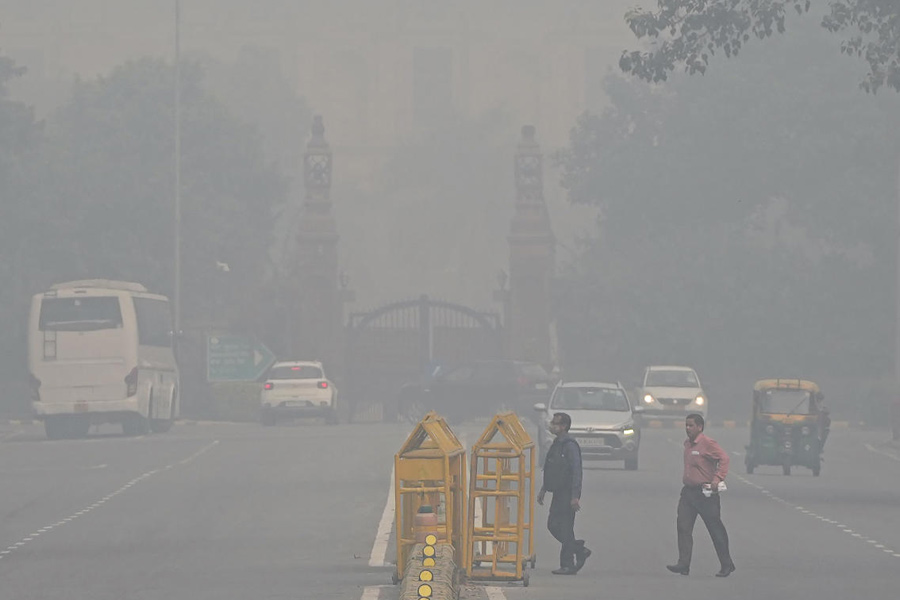Health Effects Institute’s State of Global Air 2024, released in June in partnership with UNICEF, is a stunning indictment of societies that allow ambient air to be polluted with impunity. Some of the statistics about air pollution in 2021 should spur political establishments the world over into immediate action.
In India, we must focus on the headline statistic: 464 children under the age of five died breathing polluted air every day. The report also says that air pollution was the second biggest cause of death after hypertension. It accounted for 8.1 million deaths worldwide, of which 2.1 million were in India and 2.3 million in China, the two countries accounting for over 50% of deaths. Unsurprisingly, China is the world’s largest emitter of greenhouse gases; India ranks third.
Poor air quality was linked to 70% of deaths from chronic obstructive pulmonary disease, 41% of deaths from strokes, and 40% to deaths from heart diseases. The corresponding figures were 33% for lung cancer and 20% for Type 2 diabetes. The link between GHG emissions and poor health outcomes pushes us to a clear conclusion: emerging economies like India and China cannot hide behind metrics like per capita emissions, nor arguments about the necessity to push growth to lift people out of poverty. Not when it comes with this kind of cost. Before we proceed further, it would be germane to note the economic costs of the pollution-related ‘burden of disease’: in India, in 2019, the World Bank estimated the average total costs at $36.8 billion, or 1.36% of GDP.
It makes economic sense to transition to clean fuel, but here we are concerned with the human costs. To begin with, it is the State’s ethical duty to ensure that citizens lead healthy lives. Clean air is a precondition alongside food, shelter and affordable healthcare. The right to clean air is, from this point of view, a basic right.
In July 2022, the United Nations General Assembly passed a resolution recognising the right to a clean, healthy, and sustainable environment, including clean air, as a human right. In 2021, a study of ‘climate constitutionalism’ identified 11 countries that had ‘climate clauses’ in their constitutions: Algeria, Bolivia, Côte d’Ivoire, Cuba, the Dominican Republic, Ecuador, Thailand, Tunisia, Venezuela, Vietnam and Zambia. In 2024, India was ranked third from the bottom in terms of air quality according to a study by the Swiss agency, IQAir. Is it then not time to give legal shape to the right to clean air? We could also factor in that in 2024 India was ranked 176 out of 180 countries by the Yale Center for Environmental Law and Policy and the Center for International Earth Science Information Network in their Environment Performance Index.
The right to clean air is a fundamental right covered by the right to life under Article 21 of the Constitution. Since the right to a clean environment, including clean air, is also a human right, which is also a part of the right to life, there should be no roadblock in recognising that the right to clean air must be provided for by State action.
We could also take a cue from the United Kingdom where a deputy-coroner ruled in December 2020 that air pollution was legally a factor in the death of a nine-year-old girl. This opens the door, one presumes, to citizens demanding the enforcement of the right to clean air because polluted air can be recognised legally as a cause of death.
While countries like Germany and Sweden have put together legal frameworks to create the conditions for providing clean air, India, too, has enforced clean-air policies but in a piecemeal fashion. Examples are the various controls imposed on the manufacture and the use of fireworks, attempts to control stubble burning in different places, enforcing rules on the use of private cars, and perhaps most consequentially, the policy on transitioning to electric vehicles.
But a comprehensive plan must be put in place at the heart of which must be the phasing out of fossil fuels to decarbonise industry and homes. That will only happen when citizens vocally demand clean air as a legal, fundamental right.
Suhit K. Sen is the author of The Paradox of Populism, The Indira Gandhi Years, 1966-77











